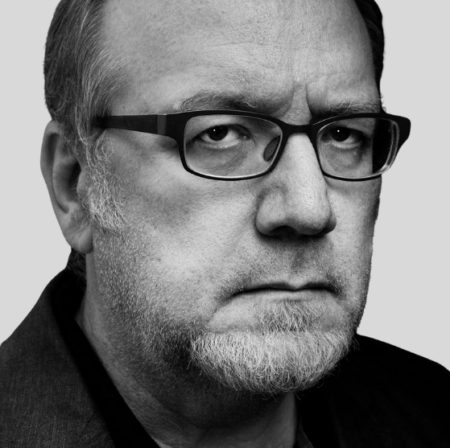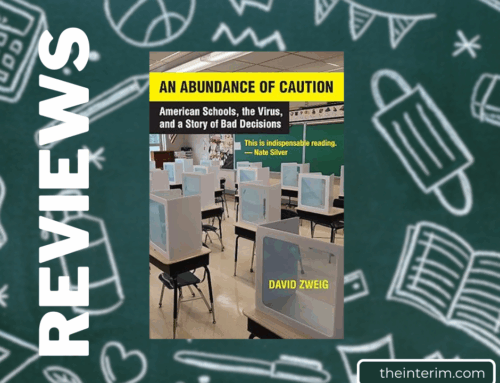Rick McGinnis:

Interim writer, Rick McGinnis, Amusements
Theodore Dalrymple is associated in my mind with a small group of conservative writers whose columns I have been reading in American and British magazines, newspapers, and websites for at least two decades – men such as the historian Victor Davis Hanson and the economist Thomas Sowell. I’m not sure how much this trio have in common – one English, two American, none of them sharing much in terms of background or subject matter except for a distinctly skeptical take on the ongoing social and political trends of the day, and a conviction that as bad as aspects of the past could be, the world we’re building now has the potential to be much worse.
Dalrymple is actually the pen name of a British physician and psychiatrist named Anthony Daniels, the son of a communist businessman (Dalrymple’s writing implicitly assumes that such contradictions can and do thrive in societies reliant on cognitive dissonance) and a mother who was a Jewish refugee from Nazi Germany. A startlingly prolific writer, his worldview can be easily divined from the titles of his books – Fool or Physician: The Memoirs of a Sceptical Doctor; Mass Listeria: The Meaning of Health Scares; Life at the Bottom: The Worldview That Makes the Underclass; Our Culture, What’s Left of It: The Mandarins and the Masses; The New Vichy Syndrome: Why European Intellectuals Surrender to Barbarism; Spoilt Rotten; The Toxic Cult of Sentimentality and In Praise of Folly: The Blind-Spots of Our Mind.
His latest book, Around the World in the Cinemas of Paris, is what could be considered light reading from Dalrymple. Retired, he divides his time between a house in England and one in France, the latter of which allowed him to spend a great deal of time in the many movie houses of the French capital, where art houses and independent small cinemas seem to have survived while virtually disappearing from every other western city (including my own.)
He begins the book by stating that he chose the films reviewed in its pages – 33 mostly recent movies from places like Zambia, Sweden, the Congo, Lithuania, Burma, Peru, Paraguay, and Iraq – because they were screening during his frequent visits to Paris, and with the intention of avoiding films from France, Britain and America, “as the countries were too familiar to me.”
They were almost inevitably small films, what we once called art house fare, and are now seen – if at all – at film festivals or on niche streaming services. He adds in a preface, written during the recent pandemic lockdowns, that his little cinematic world tour now turns out to be a record of a time and experience that might be extinct: “Even if the little cinemas that I haunted for a year, with their tiny sub-economic audiences, re-opened as normal, the atmosphere would be changed if not permanently, at least for a long time. Until amnesia works its magic, we shall look on people sitting near us, especially if we happen to be of a certain age (as I now am), as the potential bearers of the modern plague, Covid-19, and thus the harbingers of our death. We shall now consider, at least subliminally, an excursion to the cinema, which we once took without a second thought, as potentially dangerous, and the auditorium as a charnel house. We shall watch films with masks on, as if they emanated a poisonous gas, and while our fears will no doubt be grossly exaggerated, we are not so constituted as to fear risks strictly according to their statistical likelihood.”
The French, Dalrymple explains, have a very different attitude to movie-going than the English, and think nothing of frequent solo visits to the cinema that would be “regarded as peculiar and slightly sinister” in a British city, marking you as “a paranoid schizophrenic, perhaps, or a sexual pervert.” “In England, a cinema is a music hall,” he writes, “in France a library.”
He tells the story of going with his wife to a screening of a film in the UK with the forthright title Necrophilia. The cinema was decrepit, and they were alone until “a man in an old gabardine raincoat, the very stereotype of the imagined lone cinemagoer, entered, looked around and, with the rest of the auditorium empty, sat next to us.” Too polite to ask him to move, they sat together as the opening credits rolled and “when the title of the film appeared on the screen, he relaxed and sighed, like air escaping slowly from a balloon, ‘Ah, necrophilia’.” Dalrymple’s wife soon made her exit, joined shortly afterwards by her husband.
Dalrymple describes the picture as being made “with the financial assistance of the Arts Council of Canada or Quebec,” which made me curious enough to look up the film online. There’s apparently no such easily searchable movie with this title, but I did remember Kissed, a 1996 film shot in Vancouver that opened to considerable media attention (at least in Canada); working as a photographer at the time, I recall shooting portraits of Lynn Stopkewich, the director. Based on a short story by Barbara Gowdy, it starred Molly Parker as a young woman working at a funeral home whose sexual ardour is aroused more by the dead than the living.
Perhaps Dalrymple’s faulty memory – or a writer’s need to make a story more concise – changed the title of Kissed to something more on the nose. In any case, I’m almost certain this would be the same film, and it makes a point about government funding of the arts that Dalrymple revisits elsewhere in his book.
Writing about films casually featuring gay relationships set in countries not known for their liberal attitudes to homosexuality, Dalrymple notices that they were funded with money from the European Union, which makes him idly reflect that some top-down social agenda might be in play. “It seems that we might here be in the presence of an ideology, or at least the simulacrum or pale imitation of an ideology,” he writes. “It is a commonplace that European societies, especially at their summit, have lost their religious bearings, indeed rejected them altogether, and are in search of a transcendent common meaning, purpose and ethical framework.” Dalrymple continues: “Their best stab at it (not a very good one) is a doctrine of human rights and the search for victims whose rights have been infringed. No sooner discovered, these rights become both backdatedly universal and immemorial, and countries and societies that do not respect them (because they haven’t caught up with the latest fashion in moral enthusiasm) are subject to propaganda bought with public funds.”
Dalrymple, an atheist, isn’t particularly outraged by any of this, but he does take time to note that an indirect taxpayer subsidy is being extracted from populations who might not agree with their ultimate destination. There might not be an explicit agenda at work, but what can’t be denied is how government money is essential to filmmaking that hasn’t any hope of attracting an audience or recouping its meagre budgets. “In effect, poor people in many different countries, including France, must in effect have been subsidizing my pleasure,” writes Dalrymple. “Whatever the morality of this, I was very glad they did, even being so kind as to reduce the price of my admission on account of my advanced age.”
I’m not sure that I’d sit through the films Dalrymple reviews in his book; based on his plot summaries and reactions they seem redolent of a general grimness and misery that I haven’t sought out since I was much younger. Which isn’t to say that reading about them is a chore. On the contrary, his experience working and traveling in the countries and regions where they’re set provides context, and a spur for some wryly recalled memories of places most of us will never visit, either because time has transformed them utterly or because most people prefer a luxury resort to several days in a cramped bus traveling along rutted roads across the waistline of Africa.
Even if you disagree with him, Dalrymple is a pleasure to read, and the book is full of incisive, sometimes aphoristic moments of clarity. Writing about unremarkable scenery beautifully shot in movies, he confirms a truth I’ve discovered after years of shooting landscape photography: “Dramatic landscape, when represented, easily becomes kitsch, and grandeur is not necessarily sublimity.”
Reviewing a film from Algeria, he reflects on the incuriosity and the fear of speaking their minds shown by elite, westernized students at a lycée in Algiers: “An Algerian psychiatrist interviewed about them says the Algerian schools are not producing citizens but inquisitors. Are we not going in the same direction?”
Writing about a film set in the Channel Island of Jersey, he states that “the anti-bourgeois stance of the film irritated me somewhat. (You can never go far wrong with a bourgeois audience in attacking the bourgeoisie.)”
A film from Korea reminds Dalrymple that he’s only been to Korea once, and that it was to the totalitarian North and not the capitalist South. “It was so terrible that, though Russia had yet to emerge from the dark night of communism, when I arrived back in Moscow from Pyongyang, I felt that I breathed free again – relatively-speaking, that is.”
After describing a gory and explicit battle scene near the end of the same film, he observes that “the whole film was explicit, and the problem with the explicit in film is that it turns everything into spectacle, whereas the implicit works by insinuation into the imagination.” (A point worth making in the age of spectacular digital effects and big budget films based on comic books, though I feel that we’re well past the point of no return here, aesthetically and critically.)
A German film about a classroom revolt in East Germany, protesting the 1956 Soviet invasion of Hungary, features a scene where the modest student rebellion is so troubling that it prompts a visit from the government’s Minister of Education to the school. “In him, ideology has replaced all human feeling,” Dalrymple writes. “There is a terrible sincerity in him. (We often forget that sincerity may be a vice worse in its effects than cynicism.)”
Summing up his reaction to the same movie: “A film like The Silent Revolution performs a valuable service in allowing us to enter imaginatively into the experience of totalitarianism; an experience whose horror we are in danger, such is the shallowness of our contemporary culture, of forgetting only thirty years after it ended, thanks in small part to the understandable unwillingness of those who experienced it in propria persona to talk about it.”
Dalrymple frequently questions his own instinctual preference for the quaintness and human scale of economically stunted and politically oppressive countries, given his experience of the modern, First World city and its denizens. “I have lived (though strictly by choice) several years under authoritarian regimes, and being by nature timid, obedient and conventional, I was not much bothered by them.”
Writing about a film from Burma, he recalls his time in the country many years previous under its military dictatorships, a “tyranny tempered by laziness and incompetence. It was xenophobic and self-serving and I ought to have hated it.” Yet, Dalrymple writes: “Instead I loved it. The country had an indefinable charm that any modernization would destroy once and for all; the charm was as delicate and irrecoverable as the blush of a grape. I looked at the country aesthetically, not politically or economically. No doubt this was very superficial: people do not live in museums for the delectation of occasional visitors. I have little doubt that if I had to live there, I would have detested the government and done what little I could to rid the country of it. But still I could not be as enthusiastic as I ought to have been about the prospect of democratic change.”
This made me think about all the enthusiastic Canadians I have known, returning from a vacation in Cuba to rave about the terribly photogenic but implacably decaying mummification of Havana, falling apart steadily since the late 50s. (“Those cars – I don’t know how they keep them running!” they exclaim, apparently unfamiliar with the range of human ingenuity and how a Bulgarian tractor motor will fit into the ample front end of a 1956 Chevy.) For these people, a McDonalds on the Paseo del Prado or a Costco on the outskirts of Varadero would be a calamity more tragic than the introduction of a living wage or basic internet.
Dalrymple’s anecdotes do a lot to undercut our reliance on second-hand experience – a well-written article, an evocative book, an authoritative documentary, endless beautiful photos on Instagram – to provide an illusion that we have knowledge where there’s none: “There is a tendency to see a film and think one knows a country.”
I’m reminded of the Danish director Lars von Trier, who has made films with explicitly American settings and themes despite a crippling fear of flying that’s prevented him from working outside Scandinavia or traveling outside Europe. Movies, being immersive experiences (at least when they’re well made) are the easiest route to false authority, but it’s worth remembering that they’re created by committee, and even self-proclaimed auteurs have to rely on the talents (or lack thereof) of others to realize their vision.
Creating a film demands any number of shortcuts, from judicious editing to one country’s landscape standing in for another half a world away, while demanding an audience make a leap of faith – also known as suspension of disbelief (an even more sinister phrase, to my mind). Elisions and liberties that would destroy the credibility of a piece of journalism or a non-fiction book are perfectly acceptable in movies because, as Dalrymple understands, “cinema is an art absolved from the need for perfection.”




